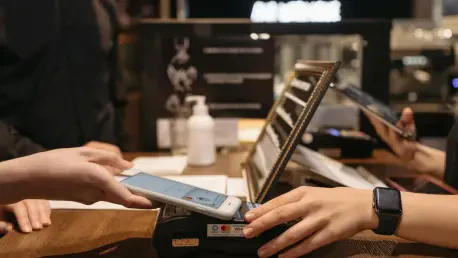Welcome to an insightful conversation with Kofi Ndaikate, a seasoned expert in the fast-evolving world of financial technology. With deep knowledge spanning blockchain, cryptocurrency, and regulatory frameworks, Kofi brings a unique perspective to the latest developments in digital payments. Today, we dive into the groundbreaking partnership between EazyPay and Mastercard in Bahrain, exploring how their collaboration is transforming B2B payments through innovative tools like the Mastercard Receivables Manager. We’ll touch on the simplicity of digital solutions, the massive growth projected in virtual card spending, and Bahrain’s emerging role as a FinTech hub in the region. Let’s get started!
How did the partnership between EazyPay and Mastercard come about, and what inspired this focus on Bahrain’s B2B payment landscape?
The partnership was born out of a shared vision to address inefficiencies in B2B payments, which have long been a pain point for businesses globally. EazyPay and Mastercard saw an opportunity to leverage digital tools to streamline processes like receivables management. Bahrain emerged as a natural choice due to its progressive regulatory environment and growing status as a financial hub in the Middle East. The country’s commitment to fostering innovation in financial services made it an ideal launchpad for a solution that could redefine how businesses handle transactions.
Can you walk us through what the Mastercard Receivables Manager offers to businesses in simple terms?
Absolutely. At its core, the Mastercard Receivables Manager is a tool that automates the handling of virtual card payments for businesses. Instead of manually tracking and processing payments, which can be a slow and error-prone process, this platform takes care of everything from capturing payments to reconciling them in a company’s accounting system. It’s like having a digital assistant that saves time, reduces mistakes, and helps businesses keep their cash flow in check.
Why was it so important to design this platform with minimal tech integration requirements?
The goal was to make this solution accessible to as many businesses as possible, regardless of their size or technical expertise. By eliminating the need for complex setups or APIs, we’ve lowered the barrier to entry. This means even smaller merchants or those without dedicated IT teams can adopt the tool without hassle, allowing them to focus on their core operations rather than wrestling with complicated technology.
With global B2B virtual card spending expected to exceed $14 trillion by 2029, what do you see as the key drivers behind this explosive growth?
Several factors are fueling this trend. First, businesses are increasingly prioritizing efficiency and security, and virtual cards offer both by reducing fraud risks and speeding up transactions. Second, the shift to digital-first operations across industries like manufacturing, logistics, and retail is pushing companies to adopt tools that support seamless supplier payments. Lastly, the scalability of virtual card solutions makes them attractive as businesses grow and handle larger transaction volumes.
How does this collaboration position Bahrain as a leader in the expanding B2B payments market, which is forecasted to surpass $213 trillion by 2032?
Bahrain is already a standout in the region for its forward-thinking approach to FinTech, with supportive policies and infrastructure that encourage digital innovation. This partnership reinforces that position by introducing cutting-edge payment solutions that can attract businesses to the country. It’s not just about serving local merchants—it’s about showcasing Bahrain as a testing ground for scalable financial technologies that could influence the broader Middle East market.
Can you share how this solution tackles back-office challenges like payment reconciliation for merchants?
Payment reconciliation is often a tedious task for businesses, involving manual matching of payments to invoices, which can lead to errors and delays. The Mastercard Receivables Manager automates this end-to-end, ensuring payments are matched accurately and integrated directly into accounting systems. This cuts down on administrative workload, freeing up time for businesses to focus on growth rather than paperwork, and it minimizes costly mistakes.
What’s your forecast for the future of B2B payments, especially in regions like the Middle East where digital transformation is accelerating?
I’m incredibly optimistic about the future of B2B payments in the Middle East. We’re seeing a rapid shift toward digital solutions as businesses recognize the value of automation and efficiency. With supportive governments and a young, tech-savvy population, the region is poised to become a global leader in FinTech innovation. I expect we’ll see even more tailored solutions like the Mastercard Receivables Manager, alongside increased adoption of technologies like blockchain for secure, transparent transactions. The next decade will likely redefine how businesses interact financially on a global scale.









